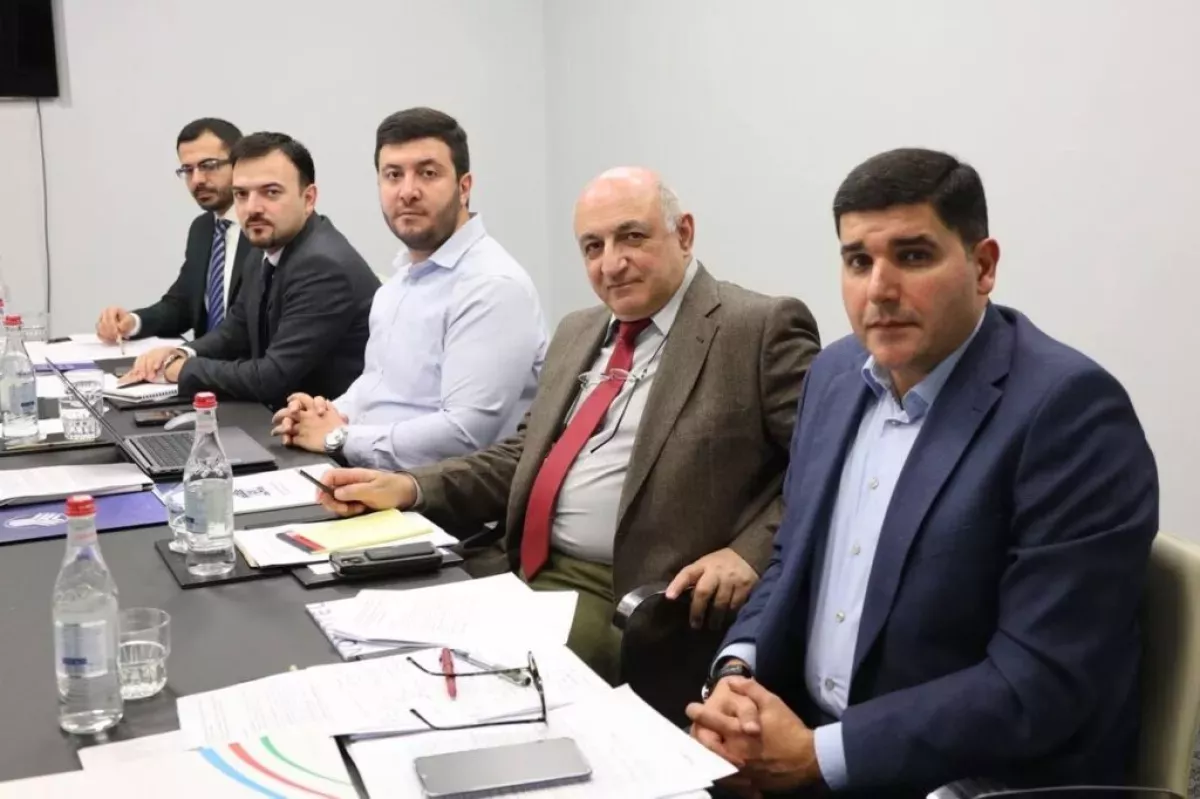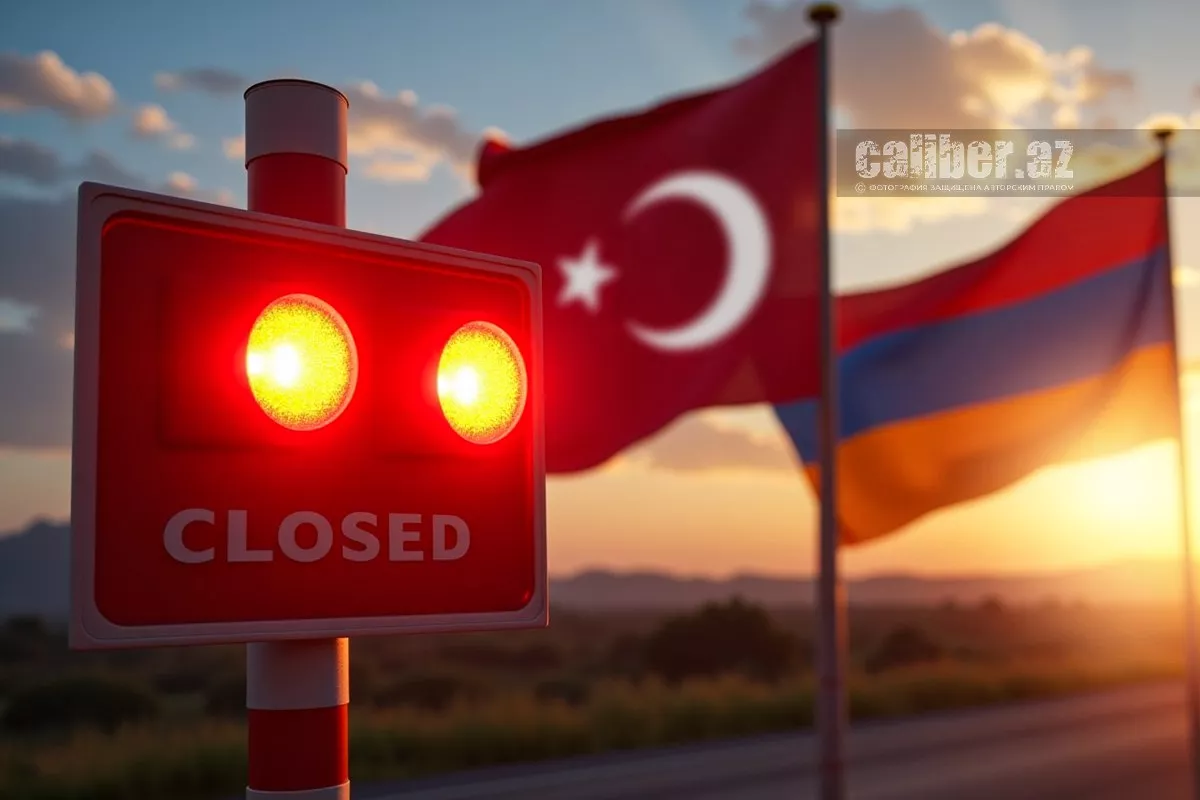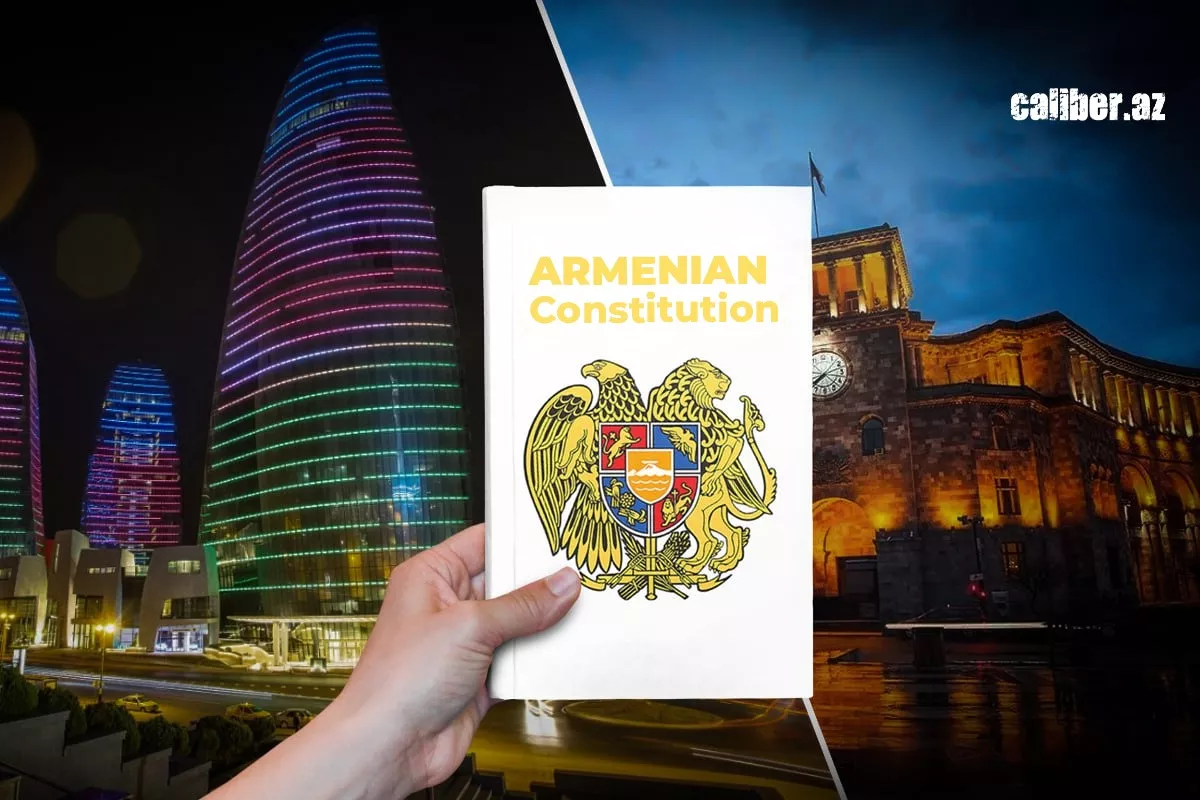Past grievances shouldn’t determine today’s relations Armenian analyst on future peace with Azerbaijan
In an exclusive interview with Caliber.Az, Boris Navasardyan, honorary president of the Yerevan Press Club and a respected Armenian political analyst, shares his insights on the evolving Armenian-Azerbaijani relationship.
– Positive developments are currently taking place between Azerbaijan and Armenia, a kind of gesture of reconciliation: Azerbaijan has lifted restrictions on transit of goods to Armenia through its territory, and Pashinyan, in turn, has expressed readiness to open communication routes for Azerbaijan and provide a route for trucks from Türkiye to Azerbaijan and from Azerbaijan to Türkiye. In addition, a meeting of civil society representatives from both countries took place in Yerevan, in which you participated. How does Armenian society perceive the prospects of establishing a full-fledged dialogue with Azerbaijan and opening the Armenian-Turkish border?
– I will try to answer this question without relying on sociological data, based on my own impressions and observations. In Armenian society, of course, there is still difficulty in coming to terms with the defeat in the 44-day war and the subsequent events. The main, unifying reaction for many is the awareness that Armenian statehood, and the political thought underlying it, were unable to respond adequately and competently to the security challenges and tasks posed—broadly speaking—on the diplomatic front, and to find a formula for development that corresponds to geopolitical realities.
Most people do not even fully realise the complexity of this awareness, so they simplify it, reducing the explanation for what happened to individual personalities. None of the leaders of past years enjoys significant support in society for their actions, either during their time in power or today. Nor can Prime Minister Nikol Pashinyan boast broad approval for his actions, having in 2018 offered an unrealised—at least at this stage—hope that, after 30 years, the potential for national revival would be realised and directed along a forward-looking path.
Of course, the memory of the war’s victims and the daily challenges resulting from the mass exodus of Karabakh Armenians (voluntary relocation – Caliber.Az) add darker tones to the perception of reality.
However, if one descends from the heights of “cosmic” reflection to a pragmatic and immediate perspective, the processes that directly preceded and followed August 8 of this year are accepted by the “quiet” majority with calm approval. This is reflected, in particular, in the fact that people are increasingly focused on pressing everyday concerns: finding their place in the labour market or in entrepreneurship to secure a decent income for their families, acquiring property or improving their living conditions, and organising leisure activities… These developments are also facilitated by the events you mentioned in your question.
What is happening in the media and political space, where fierce struggles—especially intensified on the eve of parliamentary elections—give the impression that the whole country is in turmoil, leaves a significant part of society indifferent. People, of course, discuss current events, but for the most part, they are not inclined to engage directly.

I believe this situation is quite favourable for establishing a comprehensive dialogue with Azerbaijani society. Despite psychological traumas and persistent stereotypes, this process brings a life-affirming sense of optimism to Armenian citizens as they shape their own future.
– Which is viewed with greater caution in Armenia: establishing relations with Azerbaijan or with Türkiye?
– The opening of the border with Türkiye is a somewhat different matter. Unlike the normalization of relations with Azerbaijan, which is an urgent issue on the agenda, this topic is not new, although it gains a new resonance in the context of grand projects to unblock transport communications in our region. Whereas previously it was considered mainly from the perspective of developing Armenian-Turkish relations, it is now seen as an important component of the country’s and the region’s strategic prospects. In this sense, the arguments in favour of opening the border are now significantly stronger than, for example, during the Armenian-Turkish “football diplomacy” at the end of the 2000s.
Comparing Armenian society’s attitude toward Azerbaijan and Türkiye is difficult. There are qualitative differences here. In Türkiye, there is an Armenian community that plays a certain role in the country’s public life—newspapers, schools, functioning churches, members of parliament, businessmen… The traditions of electoral democracy in Türkiye create certain conditions for pluralism of opinions. Among prominent figures, there are those who, to some degree, share the perspective of their Armenian-origin compatriots regarding the past. True, many of them are now abroad, but the diversity of positions and publicly expressed views persists.
For example, attitudes toward the 1915 tragedy in Azerbaijan are far more categorical than in Turkish society. Armenian citizens spend holidays in Türkiye, use Turkish airports and roads for transit to third countries, and there is a segment of the population considering opportunities to work in the neighbouring country—and acting on them.

Finally, it is worth remembering that Ankara was among the first to recognise Armenia’s independence in 1991, and in 1992–1993 supplied wheat to blockaded Armenia, albeit on the condition that it would receive compensation from the EU.
All of this, I think, is enough to understand why full normalisation of Armenian-Turkish relations—including opening the border and exchanging embassies—long appeared a far more realistic prospect than bringing relations with Azerbaijan to the same level. At the same time, the nature of interpersonal communication between Armenians and Azerbaijanis, similarities in mindset, habits, and the characteristics of social ties within our societies can quickly reduce the distance in perceptions between Armenians’ neighbours to the west and east. I am confident that, if political contradictions are re-evaluated and interaction is established in specific areas—the most obvious being the use of each other’s transit routes, cross-border trade, and utilisation of natural resources—reliable bridges can be built across what today seems an immensely deep chasm of distrust.
This does not mean that we will assess historical events identically, or completely forget mutual grievances, inflicted wounds, and experienced pain, but the past will, to a considerable extent, cease to determine the nature of relations today and in the future.
– The domestic political situation in Armenia today is quite tense. Pashinyan’s confrontation with an entire clan of oligarchs and officials, who rely on outside support, and, most importantly, with the Armenian clergy and its leadership, is causing concern. Will Pashinyan be able to withstand such serious opponents? How do you see the outcome of these events, and could this lead to a broad social conflict in Armenia?
– I have partially addressed this question already. But I would add that domestic political tension has been the habitual atmosphere in which Armenian society has lived for almost 40 years. I see no reason to expect fundamental changes. Of course, one would wish for political confrontations to take on a more civilised character, but that is a topic for another discussion. I do not support the Armenian authorities’ actions regarding church hierarchs. That does not mean, however, that the Church as an institution does not require reform and revitalisation.

However, signs of various dysfunctions are also present in other structures, which should be addressed as a priority. In particular, I mean the country’s main political platform—the National Assembly—whose quality of work and prevailing practices are the direct responsibility of the ruling political force, but can hardly be perceived by society as acceptable. In my view, the most effective method of improving public institutions is not confrontation between them, but the elimination of flaws through positive examples. I understand why internal Armenian conflicts cause concern in Azerbaijan. Many in your country, as well as my compatriots, fear that these conflicts may pose a threat to the progress of peace initiatives.
Yet I approach this from the opposite logic: if the process of normalising Armenian-Azerbaijani relations continues in the coming months as a steady and irreversible development, it will positively influence the domestic political atmosphere in Armenia and the outcomes of the June 2026 elections. It is also important that the current level of mutual understanding between official Baku and Yerevan, which is partly based on converging interests regarding elections, is maintained after the vote.
– How do you see the further prospects for the political climate in the South Caucasus and the peace dialogue between Baku and Yerevan? The ball is on Armenia’s side, which must amend its constitution if it wants a peace treaty between our countries to finally be signed. Meanwhile, Nikol Pashinyan has proposed holding a nationwide referendum to resolve this issue. Additionally, if a full peace is concluded, Baku, Yerevan, and Tbilisi could later form a partnership union in the South Caucasus, entering a new geopolitical dimension…
– I suspect my answer may not fully satisfy the Azerbaijani audience, but I have maintained and continue to assert that the Constitution of the Republic of Armenia, as a normative legal document, does not contain any obstacle to recognising the territorial integrity of the Republic of Azerbaijan as the basis for a peace agreement. In other words, linking our constitutional reform to the signing of this agreement was a mistake.
It is another matter that the country’s Fundamental Law, both in its normative and declarative parts, should not contradict existing realities. The text of Armenia’s Declaration of Independence, adopted on August 23, 1990, naturally cannot be changed—it is a historical fact, regardless of who holds what view of it. However, the reference to this document in the new constitution, in particular the completeness of its citation, can and should, in my view, be reconsidered during the reform process and the referendum vote.
This entire process should be seen purely as an internal matter of Armenia and should not have a fundamental impact on relations with Azerbaijan. Especially since the provision of the declaration, which is perceived so acutely in your country, has never been implemented over the past 35 years—neither at the legislative nor at the practical level, including in acts on Armenia’s administrative-territorial division or in electoral processes.

A referendum is a democratic procedure, the outcome of which can be influenced by many factors, including low voter turnout on the day of voting due to bad weather. In 2003, we already had a precedent of proposed constitutional amendments, initiated by the authorities at the time, being rejected due to a lack of quorum, not to mention the contestation of referendum results in 1995, 2005, and 2015. There may be even more substantial reasons for the failure of a new referendum, again unrelated to Armenian citizens’ attitude toward establishing interstate relations with Azerbaijan based on the agreement initialled in Washington. So, was it really necessary to create artificial obstacles on this path?
Regarding the region as a whole, some concern inevitably arises over the unusually indifferent attitude of a good neighbour to both our countries—Georgia—toward the dynamic changes in the Armenian-Azerbaijani context. Georgia seems so absorbed in its internal contradictions and in settling relations with other strategic partners, primarily the European Union, that the South Caucasus environment ceases to be of particular interest. This is all the more striking given that, until recently, its role was significant—recall, for example, the episode in June 2021 involving the return of a group of prisoners of war in exchange for providing maps of minefields.
On one hand, it is welcome that Baku and Yerevan have finally acquired the ability to negotiate directly, without intermediaries. However, the transformation of relations between them will sooner or later require the involvement of a third country from our region in developing strategic scenarios for joint development. Only in this way can we be protected against destructive external interference.
As for the main potential spoiler of positive trends in the South Caucasus, I don’t think it’s hard to identify. It is enough to note that a real shift in the Armenian-Azerbaijani settlement process occurred from the moment Moscow was excluded from it by tacit mutual agreement. At the same time, I am not inclined to assign blame externally. After all, Baku and Yerevan themselves for a long time sought a third party to support a resolution in favour of only one side. I hope we are witnessing a final rejection of this flawed practice.








